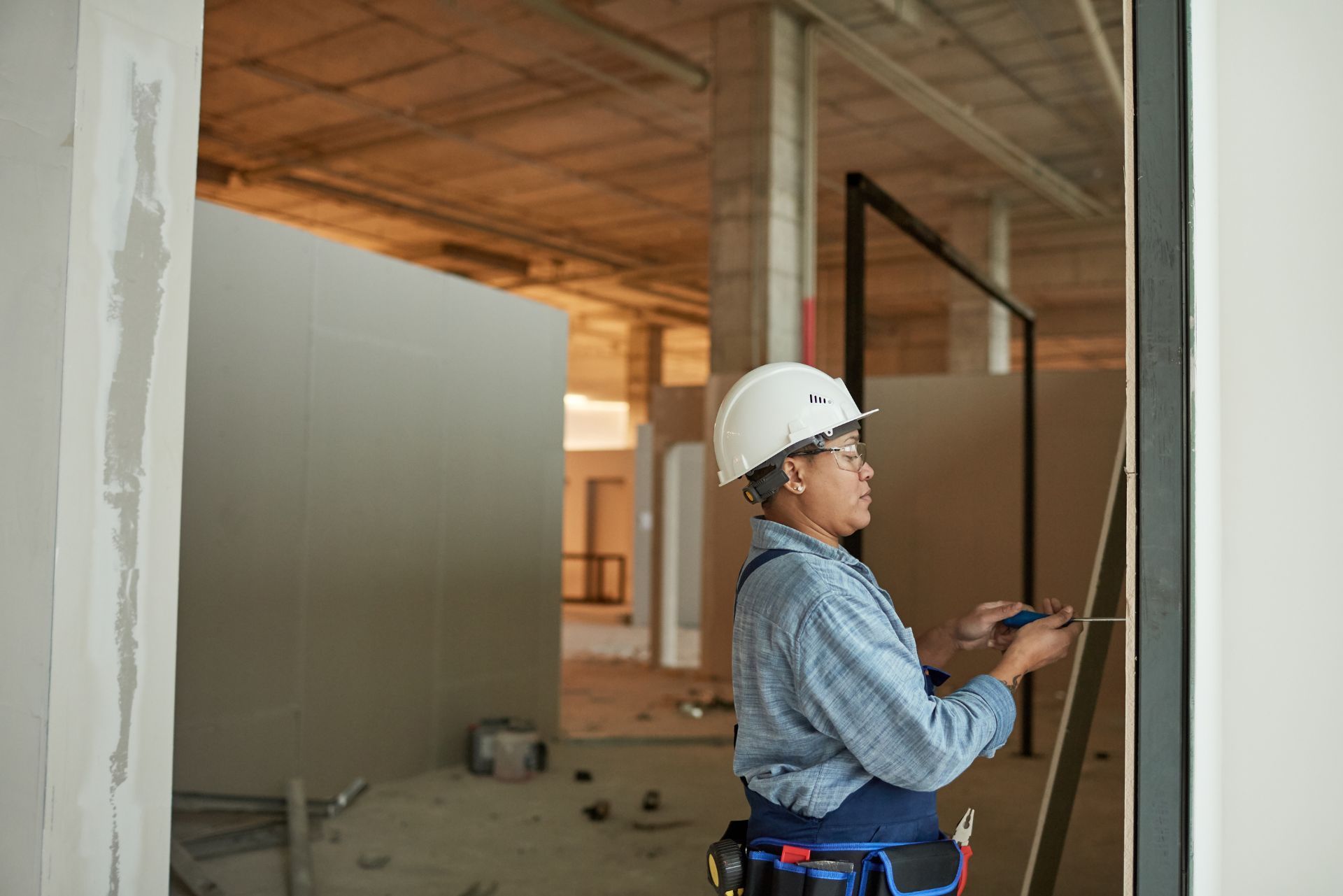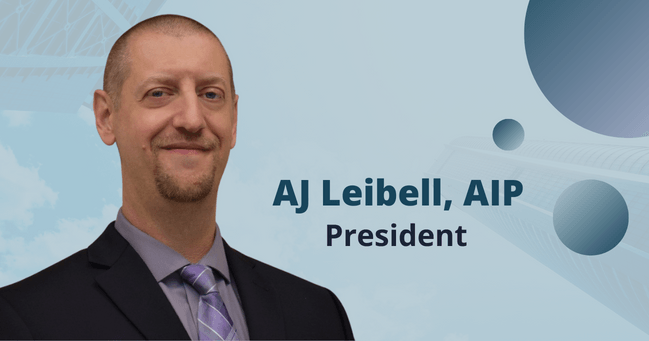Florida Drywall Contractor Insurance
8:30am - 5:00pm Mon-Fri
Will Reply in 15min*
Top Recommended Business Insurance Policies

Index
Understanding the Importance of Insurance for Drywall Contractors in Florida
Key Types of Insurance for Florida Drywall Contractors
Legal Requirements and Regulations in Florida
Factors Influencing the Cost of Drywall Contractor Insurance in Florida
How to Choose the Right Insurance Provider for Your Drywall Business
Contact Us
Phone
Location
6900 Tavistock Lakes Blvd, Suite 400, Orlando FL 32827
Operating as a drywall contractor in Florida presents unique opportunities and challenges, especially when it comes to managing risk. From unpredictable weather conditions to complex project requirements, drywall contractors must be prepared for a variety of potential liabilities. One of the most critical ways to safeguard your business is through comprehensive insurance coverage tailored specifically to the drywall industry.
This article covers everything you need to know about Florida drywall contractor insurance, including the types of coverage available, legal requirements, cost factors, and tips for choosing the right policy. Whether you’re a seasoned contractor or just starting out, understanding these aspects will help protect your business, employees, and clients effectively.
Understanding the Importance of Insurance for Drywall Contractors in Florida
Drywall contractors face a range of risks daily, from workplace injuries to property damage and contractual disputes. Insurance is not just a regulatory formality; it is a vital safety net that helps ensure business continuity and financial stability.
Florida’s construction industry is booming, with drywall installation being a fundamental part of residential and commercial projects. According to the U.S. Bureau of Labor Statistics, Florida’s construction employment increased by over 5% in the past year, highlighting the growing demand for skilled drywall contractors. This growth, however, also means increased exposure to risks, making insurance coverage more essential than ever.
Why Insurance is Non-Negotiable
Without proper insurance, drywall contractors risk severe financial losses from lawsuits, medical expenses, or property damage claims. For example, if a worker is injured on the job or a client’s property is accidentally damaged, the contractor could be held liable. Insurance policies help cover these costs, preventing out-of-pocket expenses that could cripple a small or mid-sized business.
Additionally, many clients and general contractors require proof of insurance before awarding contracts. Having the right insurance not only protects your business but also enhances your credibility and competitiveness in the Florida market.
Moreover, the diverse nature of drywall projects in Florida, ranging from high-end residential homes to large commercial buildings, necessitates specialized coverage options. For instance, contractors may need to consider general liability insurance, workers' compensation, and equipment insurance to safeguard against various risks. Each type of coverage serves a unique purpose, ensuring that all aspects of the business are protected. Furthermore, as regulations evolve and the industry faces new challenges, staying informed about the latest insurance requirements can provide contractors with a significant advantage in securing projects and maintaining a solid reputation.
In addition to the financial protection that insurance offers, it also plays a crucial role in fostering a culture of safety within the workplace. By prioritizing insurance coverage, drywall contractors are more likely to invest in safety training and equipment, which can lead to fewer accidents and injuries on the job site. This proactive approach not only protects workers but also enhances overall productivity and morale, as employees feel more secure in their work environment. Ultimately, the right insurance strategy can transform a drywall contracting business from a reactive entity into a proactive leader in the industry, paving the way for sustainable growth and success.

Key Types of Insurance for Florida Drywall Contractors
Several types of insurance are particularly relevant for drywall contractors. Understanding each type and its role will help you build a comprehensive insurance portfolio that addresses your specific needs.
General Liability Insurance
General liability insurance is the cornerstone of any drywall contractor’s insurance plan. It protects against claims of bodily injury, property damage, and personal injury caused by your business operations. For example, if a client or a passerby slips and falls at a job site or if your work damages a client’s property, this insurance covers legal fees and settlement costs.
In Florida, general liability insurance is often required by clients and subcontractors. Coverage limits typically range from $1 million to $2 million per occurrence, depending on the size and scope of your projects. It's also worth noting that having this insurance can enhance your business's credibility, as it demonstrates a commitment to professionalism and risk management, making you more attractive to potential clients.
Workers’ Compensation Insurance
Florida law mandates that businesses with four or more employees carry workers’ compensation insurance. This coverage provides medical benefits and wage replacement for employees injured on the job. Given the physical nature of drywall work, injuries such as falls, cuts, and repetitive strain are common risks.
Even if you are a sole proprietor, it’s advisable to consider this insurance if you hire subcontractors or plan to expand your team. Workers’ compensation protects your employees and shields your business from costly lawsuits related to workplace injuries. Additionally, maintaining a safe work environment can lead to lower insurance premiums over time, as insurers often reward businesses that prioritize safety and risk mitigation.
Commercial Auto Insurance
Many drywall contractors use vehicles to transport materials and equipment. Commercial auto insurance covers vehicles used for business purposes, protecting against accidents, theft, and damage. Personal auto insurance policies typically exclude coverage for business use, making commercial auto insurance essential for contractors who rely on trucks or vans.
In Florida, where traffic accidents are frequent and weather conditions can be unpredictable, having adequate commercial auto coverage is particularly important to avoid financial losses and legal complications. Furthermore, some policies may offer additional features such as roadside assistance and rental reimbursement, which can be invaluable during unexpected vehicle breakdowns, ensuring that your operations remain uninterrupted.
Professional Liability Insurance (Errors & Omissions)
While less common for drywall contractors than for design professionals, professional liability insurance can be beneficial if you offer consulting services or project management. This coverage protects against claims of negligence, errors, or omissions that result in financial harm to a client.
For example, if a drywall installation leads to structural issues or delays that cause financial losses, professional liability insurance can help cover legal defense and settlements. This type of insurance is particularly important as the construction industry increasingly emphasizes accountability and quality assurance, making it essential for contractors to safeguard against potential claims that could arise from their professional advice or services.
Equipment and Tools Insurance
Drywall contractors rely heavily on specialized tools and equipment. Equipment insurance covers repair or replacement costs if your tools are stolen, damaged, or destroyed. This coverage is crucial because downtime due to equipment failure can delay projects and reduce income.
Many insurers offer policies that cover tools both on and off the job site, providing flexibility and peace of mind. Additionally, some policies may include coverage for rented equipment, which is particularly useful for contractors who occasionally need to lease specialized tools for specific projects. Investing in this insurance not only protects your financial investment but also ensures that you can maintain productivity and meet project deadlines, even in the face of unforeseen challenges.
Legal Requirements and Regulations in Florida
Understanding Florida’s legal landscape is vital to ensure compliance and avoid penalties. The state has specific insurance requirements for contractors that vary based on business size and project type. Navigating these regulations can be complex, but staying informed is crucial for the success and sustainability of any contracting business.
Florida Workers’ Compensation Law
As mentioned, Florida requires businesses with four or more employees to carry workers’ compensation insurance. This law applies regardless of whether the employees are full-time, part-time, or seasonal. Failure to comply can result in fines, stop-work orders, and even criminal charges. It is important for contractors to understand that this insurance not only protects the employees but also shields the business from potential lawsuits arising from workplace injuries.
Additionally, contractors must post notices informing employees about their rights and coverage under workers’ compensation law. These notices serve as a reminder of the protections in place and help foster a culture of safety within the workplace. Furthermore, staying proactive about workplace safety can reduce the likelihood of claims, ultimately benefiting both employees and employers.
Contractual Insurance Requirements
Many general contractors and project owners in Florida require drywall subcontractors to carry specific insurance policies with minimum coverage limits. These requirements are often outlined in contracts and may include general liability, workers’ compensation, and commercial auto insurance. Understanding these requirements is essential, as they can vary significantly depending on the scope and scale of the project.
It’s essential to review contracts carefully and ensure your insurance policies meet or exceed these requirements to avoid disqualification or legal disputes. Additionally, some contracts may stipulate the need for additional insured endorsements, which can provide further protection for project owners and general contractors. Being well-versed in these stipulations can enhance your reputation as a reliable contractor and facilitate smoother project execution.
Licensing and Insurance Verification
Florida requires drywall contractors to obtain the appropriate licenses, which often involve proof of insurance. The Florida Department of Business and Professional Regulation (DBPR) oversees contractor licensing and may request insurance documentation during the application process. This verification process is not only a formality but also a crucial step in ensuring that contractors are financially responsible and capable of handling the risks associated with their work.
Maintaining active insurance coverage is also necessary for license renewal, ensuring that contractors remain compliant throughout their business operations. Moreover, contractors should be aware that changes in their business structure or the addition of new employees may necessitate updates to their insurance policies. Regularly reviewing and adjusting coverage can prevent lapses that could jeopardize both their license and their ability to operate legally in Florida's competitive market.
Factors Influencing the Cost of Drywall Contractor Insurance in Florida
Insurance premiums for drywall contractors vary based on several factors. Understanding these can help you manage costs while maintaining adequate coverage.
Business Size and Payroll
Larger businesses with more employees typically face higher premiums due to increased risk exposure. Payroll size is a key determinant, especially for workers’ compensation insurance, as premiums are often calculated as a percentage of total payroll. Additionally, the nature of the work performed by employees can influence rates; for instance, specialized tasks that require more skilled labor may carry different risk assessments compared to general labor.
Claims History
Contractors with a history of frequent or severe insurance claims may face higher premiums. Insurers view a clean claims record as a sign of lower risk, rewarding such businesses with better rates. Furthermore, the type of claims filed can also affect future premiums; for example, liability claims may be viewed more seriously than property damage claims, leading to steeper increases in rates for contractors with a history of such incidents.
Coverage Limits and Deductibles
Higher coverage limits and lower deductibles generally increase premium costs. It’s important to balance adequate protection with affordability, selecting limits that meet legal requirements and client expectations without overpaying. Contractors should also consider the potential financial impact of different deductible amounts; while a higher deductible may lower premiums, it could also result in significant out-of-pocket expenses in the event of a claim.
Location and Job Site Conditions
Florida’s unique weather patterns, including hurricanes and heavy rains, can impact insurance costs. Contractors working in high-risk areas or on projects with challenging conditions may pay more due to the increased likelihood of damage or delays. Additionally, local regulations and building codes can further complicate insurance assessments, as contractors must ensure compliance with safety standards that are often influenced by environmental factors.
Safety Programs and Training
Implementing robust safety protocols and training programs can reduce workplace accidents and claims, leading to lower insurance premiums. Insurers often offer discounts to contractors who demonstrate a commitment to safety. Beyond just reducing costs, fostering a culture of safety can enhance employee morale and productivity, creating a more positive work environment. Regular safety audits and employee feedback can help identify potential hazards before they result in incidents, further solidifying a contractor's reputation as a reliable and responsible business.

How to Choose the Right Insurance Provider for Your Drywall Business
Selecting the right insurance company is as important as choosing the right coverage. A reliable insurer can provide not only financial protection but also valuable support and guidance.
Look for Industry Experience
Choose insurers with experience serving the construction and drywall industries. They understand the specific risks and can tailor policies accordingly.
Compare Coverage Options and Pricing
Request quotes from multiple providers and compare coverage details, exclusions, and premium costs. Don’t automatically choose the cheapest option; consider the value and comprehensiveness of the coverage.
Check Financial Stability and Reputation
Research the insurer’s financial ratings through agencies like A.M. Best or Standard & Poor’s. A financially stable company is more likely to pay claims promptly. Also, read customer reviews and testimonials to gauge service quality.
Evaluate Customer Service and Claims Support
Responsive customer service and efficient claims handling are crucial during stressful situations. Ask about the insurer’s claims process and support resources before committing.
Consider Bundling Policies
Many insurers offer discounts if you bundle multiple policies, such as general liability, workers’ compensation, and commercial auto insurance. Bundling can simplify management and reduce overall costs.
Tips for Maintaining Adequate Insurance Coverage Over Time
Insurance needs evolve as your business grows and changes. Regularly reviewing and updating your policies ensures continued protection.
Conduct Annual Insurance Reviews
Assess your coverage annually to adjust for changes in business size, project scope, or legal requirements. This practice helps avoid gaps or unnecessary coverage.
Keep Detailed Records
Maintain accurate records of payroll, equipment purchases, and claims history. Good documentation supports accurate premium calculations and smooth claims processing.
Invest in Safety and Training
Continuously improve workplace safety to reduce accidents and claims. This proactive approach benefits both your employees and insurance costs.
Communicate with Your Insurance Agent
Maintain open communication with your insurance provider or broker. They can advise on emerging risks, new coverage options, and cost-saving opportunities.
Conclusion
Florida drywall contractor insurance is a critical element of running a successful and sustainable business. With the state’s growing construction market and unique risk factors, having the right insurance coverage protects you from financial losses, legal liabilities, and operational disruptions.
By understanding the types of insurance available, complying with legal requirements, managing costs, and choosing a reputable provider, drywall contractors can focus on delivering quality work with confidence. Regularly reviewing and updating your insurance portfolio ensures your business remains resilient in the face of challenges.
Investing in comprehensive insurance is not just a regulatory necessity—it’s a strategic decision that safeguards your livelihood and builds trust with clients and partners across Florida’s dynamic construction landscape.








